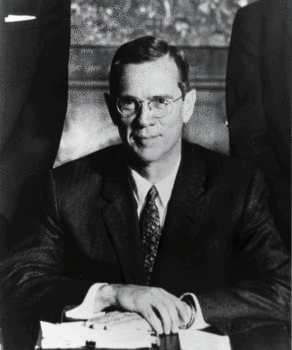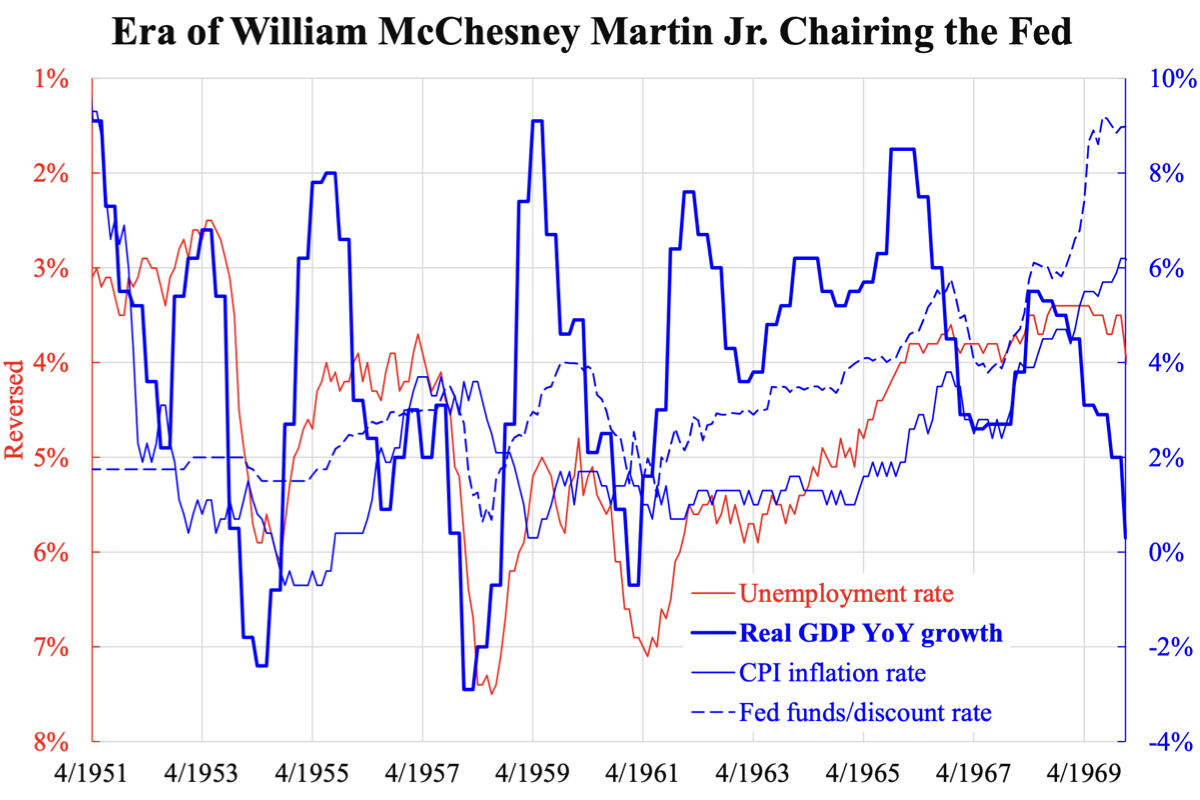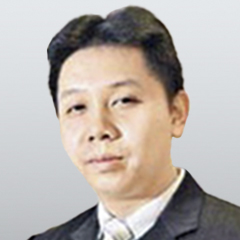The First Truly Independent Fed Chair
Distressed Patriotic Flag Unisex T-Shirt - Celebrate Comfort and Country $11.29 USD Get it here>>

Commentary
The independence of the Federal Reserve was never granted; rather, it was fought for. Although the first chairman of the Federal Reserve “System” Marriner Stoddard Eccles failed to fight for independence, his effort after demotion (from chairman to normal committee member) did reward his successors.
Another long-sitting successor after him was William McChesney Martin Junior who also fought for independence aggressively. His father had helped write the original Federal Reserve Act and served as president of the Federal Reserve Bank of St. Louis.

Having said that, independence is to a very much extent decided by the president, as well as historical lessons just learned. While the Democrats Franklin Roosevelt and Harry Truman enjoyed pressurising the Fed as a printer to finance fiscal deficits, their successor Republican Dwight Eisenhower was the opposite. The lesson from huge deficits during World War II was loss of control of inflation. Some kind of high inflation (10 percent) then high unemployment (8 percent) were observed at the end of the 1940s. With this backdrop, Eisenhower and Martin intended to alter all these.
As the accompanying chart shows, economic growth was very volatile in the whole 1950s. When Martin assumed office in 1951, even a disinflation trend and actual deflation happened, while the unemployment rate surged soon after, Martin kept the interest rate on an uptrend (discount rate prior to Fall 1955 and Fed funds rate after). Eisenhower also cut the budget deficits sharply. The Fed was criticised for not doing a good job when the next presidency returned to a Democrat. The effort of a balanced budget and interest rate was finally rewarded, just after the Eisenhower era.
As John F. Kennedy succeeded to the presidency in 1961, one of his top tasks was to undermine the Fed’s independence. Democrat presidents seem to share the same gene. When he assumed office, the United States was in recession with an unemployment rate edging 7 percent. Kennedy resumed the deficits policy and the immediate consequence seemed to be a prolonged prosperity from 1961 to 66. Inflation remained at 1 percent in the first half of the 1960s, as if fiscal expansion was done at no cost. Yet, Martin kept hiking the rate from 2 percent to near 6 percent. He was then in tension with the Treasury Department and the White House.
The situation worsened after Kennedy was assassinated in November 1963. Lyndon B. Johnson (November 1963 to January 1969) had aggressive policies. The Vietnam war was not only one of the worst battles, but it ended the post-war, rare run of good days. As the history of 1940s repeated, huge deficits led to depreciation of the dollar and the gold standard was getting tough to maintain. When the dollar devalued against gold, inflation started to rise and GDP growth began to fall, marking a new page of the stagflation era. In his late life as a Fed chairman, Martin suffered more political pressure and historians labelled him as turning dovish finally.
From an inflation-targeting perspective, this seems not really true. Fed funds rate remained at roughly 2 percent above inflation throughout his rule even until the very last moment. Although both Eccles and Martin fought hard for independence, the former failed but the latter succeeded. Today, the Federal Reserve buildings are named in honour of both of them.
Views expressed in this article are the opinions of the author and do not necessarily reflect the views of The Epoch Times.






